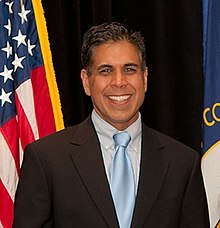The rise of Donald Trump and Bernie Sanders and the flops of the Jeb Bush, Scott Walker, and Rick Perry campaigns illustrate, yet again, how weak the influence of money can be on election results. This is a problem for those who argue that plutocracy has overtaken democracy or that money in politics is the root cause of corruption in government. “Money buys elections” is becoming embarrassingly passé, so a new slogan is needed to promote regulation.
Interestingly, the “reformers” can’t seem to decide on one. On one hand, Rick Hasen and others are attempting to reframe the debate away from presidential politics and towards down-ballot races and policymaking. Hasen writes:
“In spite of the rhetoric of some campaign reformers, money doesn’t buy elections. Instead, it increases the odds of electoral victory and of getting one’s way on policies, tax breaks and government contracts. And the presidential race is the place we are least likely to see money’s effects. Looking to Congress and the states, though, we can see that the era of big money unleashed by the Supreme Court is hurtling us toward a plutocracy in which the people with the greatest economic power can wield great political power through campaign donations and lobbying.”
Hasen’s view seems to be that because presidential elections attract so much attention and spending, it’s extremely difficult for donors to exert significant influence over them. In his opinion, wealthy individuals have more sway in smaller races, but it’s hard to seize the spotlight on a stage as big as the presidential election.
But a contradictory strain of argument is emerging elsewhere, most prominently at the Editorial Board of The New York Times. Instead of looking to Congressional, state, and local campaigns to unearth the Big Money bogeyman, the Times believes we need to look bigger:
“No matter who comes out on top on Super Tuesday, this round of presidential primaries has been turning conventional notions about campaign finance upside down…. So what’s the problem? The general election.
With only two nominees to back, tens of millions more from big donors will come sweeping into the race. Big Republican backers like the Koch brothers and Sheldon Adelson will come off the sidelines; other millionaires and billionaires will step up their super PAC giving. The Democratic National Committee just lifted the ban on lobbyist contributions; that means that if Hillary Clinton becomes the Democratic nominee, individual lobbyists will be able to contribute more than $300,000 each to the Hillary Victory Fund, a joint fund-raising committee established in partnership with the national committee. And those maxed-out donors? Come the general election, they’ll all be able to kick in another $2,700.”
The Times’ view appears to be that because presidential elections attract so much attention and spending, it’s extremely easy for donors to exert significant influence over them. In their opinion, wealthy individuals have less sway in smaller races, but Big Money reigns on the big stage of the presidential election.
It’s as if the pro-regulation crowd is trying to distract from the outcomes of the presidential primaries and the growing public realization that “money doesn’t buy elections” by shouting “look over there!” Problem is, they’re pointing in different directions.
Either money is most effective when it is centralized on very few candidates in a high-profile race, or it is most effective when it is dispersed across many candidates in low-profile state and Congressional races. You can’t have it both ways.
Instead of trying to explain away 2016 when it doesn’t fit the tired narrative, we should learn from it. What we’ve seen this cycle is that money can be an equalizer even when it is unequal. Campaign donations allow Americans to support the candidates of their choice, and gives those candidates a chance to succeed even if they are not darlings of the media and party elites. That’s something to celebrate, not restrict.














